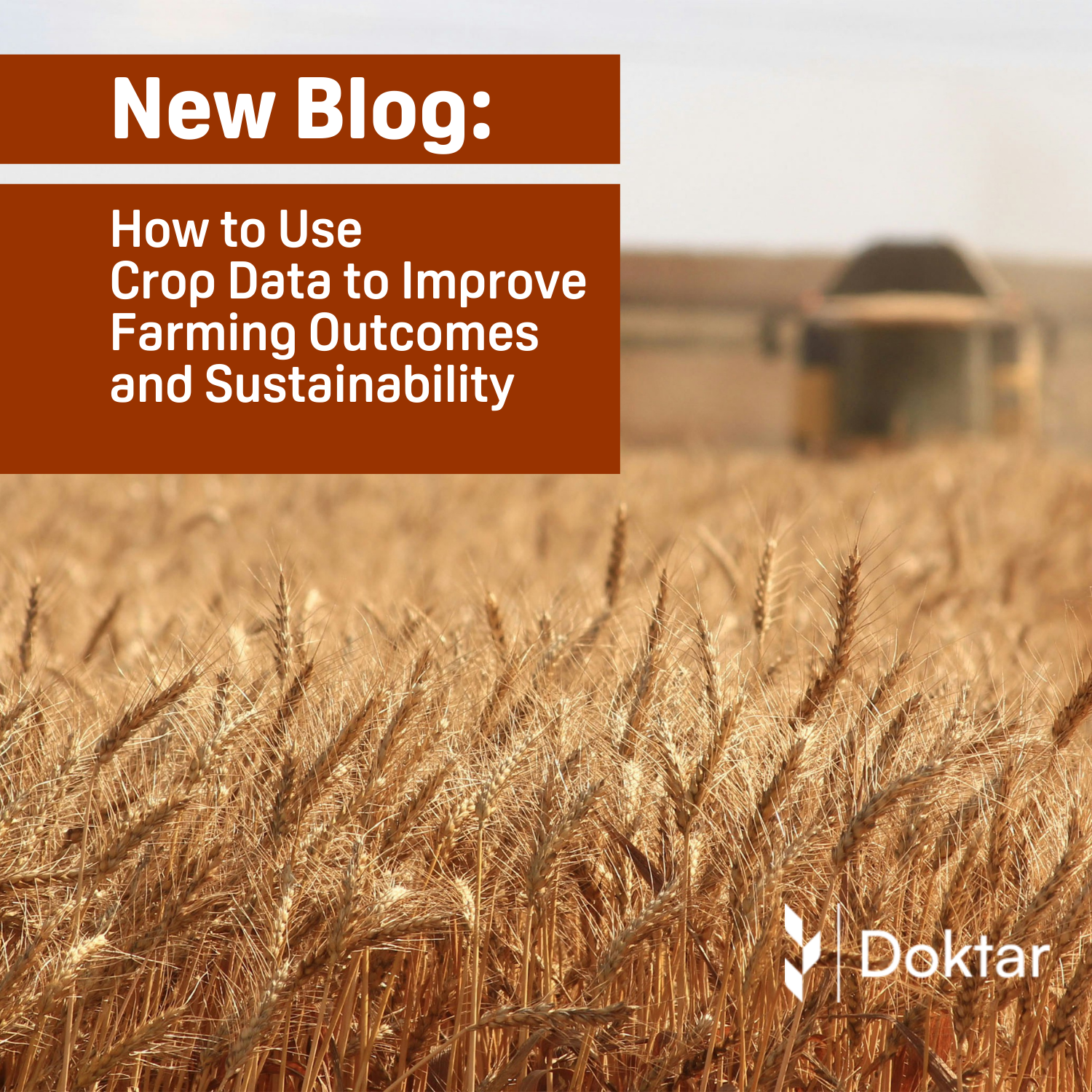

How to Use Crop Data to Improve Farming Outcomes and Sustainability
Crop data empowers farmers by enabling precision agriculture, enhancing productivity, and promoting sustainability. Tools like Doktar's CropMap, Orbit, Filiz, and PestTrap transform raw data into actionable insights for optimized irrigation, pest management, and resource use. This data-driven approach supports sustainable farming practices, ensuring environmental stewardship, improved yields, and resilience against climate change and food insecurity.
Published on 26 December 2024
Crop Data: The Key to Modern Agricultural Success
In the contemporary agricultural landscape, crop data empowers farmers, giving them more control over their fields and driving significant productivity, efficiency, and sustainability improvements. At its core, crop data refers to information collected from agricultural fields, encompassing everything from soil characteristics and crop types to weather conditions and pest populations. This data is a critical foundation for informed decision-making, enabling farmers to take precise actions that optimize their operations. Crop data allows for early detection of potential issues, such as nutrient deficiencies, pest infestations, or water stress, enabling timely interventions that save resources and maximize yields. Additionally, by analyzing historical and real-time data trends, farmers can adopt predictive strategies that enhance resilience against unpredictable climate conditions and market fluctuations.
Doktar’s Innovative Tools for Data-Driven Agriculture
The future of agriculture lies in data-driven decision-making, and Doktar is at the forefront of this transformation. The possibilities are endless, from urban farming initiatives to large-scale regenerative agriculture projects. With tools like CropMap, Orbit, Filiz, and PestTrap, farmers can adapt to changing conditions, anticipate challenges, and confidently seize opportunities. Whether detecting field boundaries, monitoring crop health, or optimizing resource use, Doktar’s solutions are designed to empower farmers every step of the way.
The Versatility of Agricultural Data Types
The data types that can be collected in agriculture are as varied as the challenges farmers face. Field data, for example, includes essential information about boundaries and planting patterns. Soil data provides crucial insights into pH levels, nutrient content, and moisture, helping farmers determine the precise needs of their crops. Weather data, such as hyper-local forecasts and precipitation patterns, enables informed decisions about irrigation and spraying schedules. Crop growth data reveals yield potential and highlights underperforming zones, while pest and disease data help farmers address threats before they become widespread. Each of these data types plays a vital role in ensuring the success and sustainability of farming practices. In other words, the rise of precision agriculture, facilitated by crop data, has brought these data types together into a cohesive framework for optimizing inputs and maximizing outputs.
Precision Agriculture and Sustainability: A Perfect Match
One of the most significant applications of crop data lies in crop analysis, which transforms raw information into actionable insights. Actionable insights help farmers make precise, data-backed decisions that optimize resource use, such as applying the right amount of water, fertilizer, or pesticides where needed most. Farmers risk overusing inputs without these insights, leading to unnecessary costs, environmental degradation, and diminished returns. By turning complex data into practical strategies, actionable insights enable farmers to adapt quickly to changing weather patterns or emerging pest threats, ensuring consistent productivity and sustainability.
The digital transformation in agriculture offers farmers unprecedented opportunities to modernize their practices and address challenges precisely. By adopting digital tools and platforms, farmers can move away from traditional methods and embrace data-driven decision-making that increases efficiency and sustainability. This transformation includes integrating IoT devices, remote sensing, and AI-powered solutions to collect, analyze, and interpret data across various aspects of farming operations. With these technologies, farmers can monitor field conditions in real time, predict outcomes, and implement targeted interventions, ultimately enhancing productivity while reducing waste and environmental impact. As a result, digital transformation is not just an upgrade—it is a fundamental shift toward more innovative and sustainable farming.
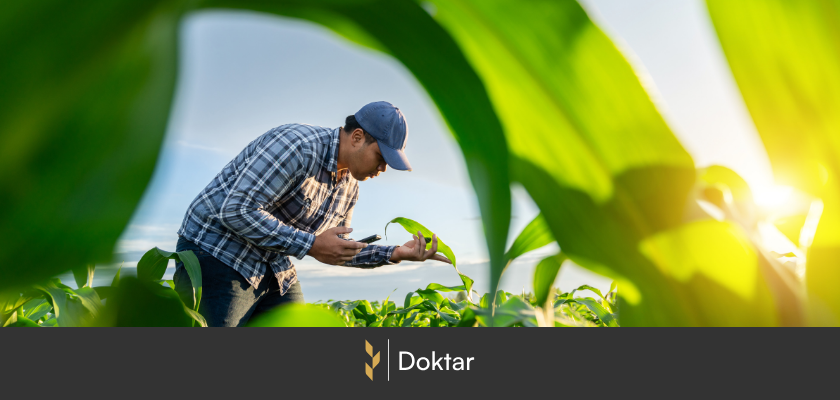
Doktar’s CropMap is precisely engineered to fulfill this purpose. It employs cutting-edge technologies to detect field boundaries, identify crop types, and monitor harvests with up to 98% accuracy. Farmers can efficiently plan their activities, reduce input costs, and boost yields by integrating this data with advanced analytics. In addition to its accuracy, CropMap offers a comprehensive view of field dynamics, enabling farmers to identify trends and anomalies across growing seasons. Its tailored analytics allow users to make informed decisions on crop rotation, resource allocation, and market strategies, ensuring optimized operations and long-term sustainability.
Similarly, Doktar’s Orbit and Filiz tools provide real-time insights into crop health and soil conditions, empowering farmers to manage their fields proactively. Orbit leverages satellite imagery and advanced analytics to monitor vegetation indices, detect problematic zones, and recommend precise interventions while reducing the need for frequent field visits. Filiz complements this by delivering hyper-local data on soil moisture, temperature, and humidity, enabling farmers to optimize irrigation schedules and manage water resources effectively. Together, these tools enhance operational efficiency and support sustainable agriculture by reducing input waste, conserving resources, and ensuring that farming practices align with environmental stewardship goals.
The integration of these tools highlights the potential for data-driven farming to become a cornerstone of sustainable agriculture. By empowering farmers with precise and actionable insights, these technologies improve day-to-day operations and contribute to global efforts in combating food insecurity and climate change. Crop data links innovation and environmental responsibility, showing that productivity and sustainability coexist seamlessly in modern farming practices.
Precision agriculture involves using advanced technologies to monitor and manage variability within fields. Tools like Orbit’s Variable Rate Application (VRA) take this concept to the next level by analyzing satellite imagery and dividing fields into productivity zones. Inputs such as water, fertilizer, and pesticides can be applied precisely where needed, reducing waste and minimizing environmental impact. This approach not only lowers costs but also supports sustainable farming practices, making it an essential strategy for the future of agriculture.
The benefits of crop data go beyond productivity. By analyzing data collected from tools like Filiz and SoilScanner, farmers can significantly reduce the overuse of water, fertilizers, and pesticides, ensuring that resources are used efficiently and responsibly. Real-time insights from Orbit allow for proactive decision-making, such as determining the optimal time to irrigate or identifying pest outbreaks early. These proactive measures improve outcomes and contribute to the broader goal of sustainability.
At Doktar, sustainability and productivity go hand in hand. Farmers can reduce their environmental footprint by leveraging crop data while enhancing their yields. Doktar’s solutions, such as disease risk forecasting and irrigation recommendations, promote regenerative farming practices that preserve soil health, increase biodiversity, and conserve water. Through tools like CropMap, farmers gain access to a comprehensive view of their operations, enabling them to adopt efficient and environmentally friendly practices.
By employing the power of crop data, farmers can improve their own outcomes and contribute to a more sustainable agricultural future. At Doktar, we aim to ensure that every agronomic decision is based on information and optimization, creating a healthier, more sustainable world for future generations. If you are ready to transform your farming practices, contact us today to learn how our innovative tools can help you achieve your goals.
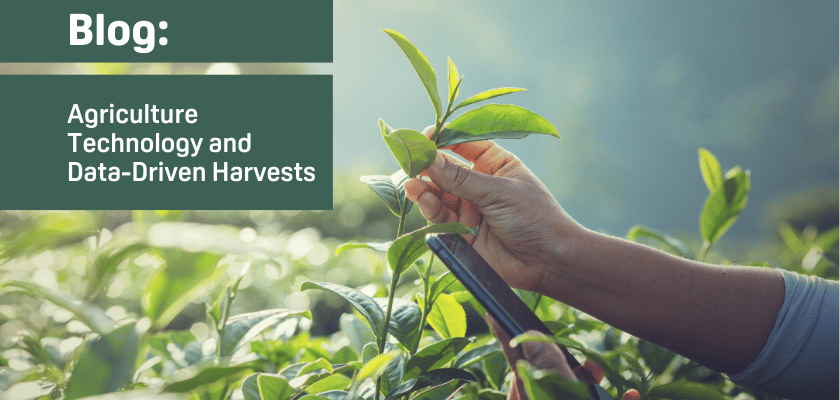
Agriculture Technology and Data-Driven Harvests
The convergence of agriculture technology and data-driven solutions represents the next frontier of innovation in farming. With companies like Doktar leading the way, farmers can leverage these advancements to improve productivity, reduce environmental impact, and secure a more sustainable future for agriculture. Whether through precision agriculture, sustainable agriculture, or cutting-edge smart agriculture technology, the future of farming is bright, and data is at the heart of this transformation. Technology's positive impact on this future should inspire and motivate us all.
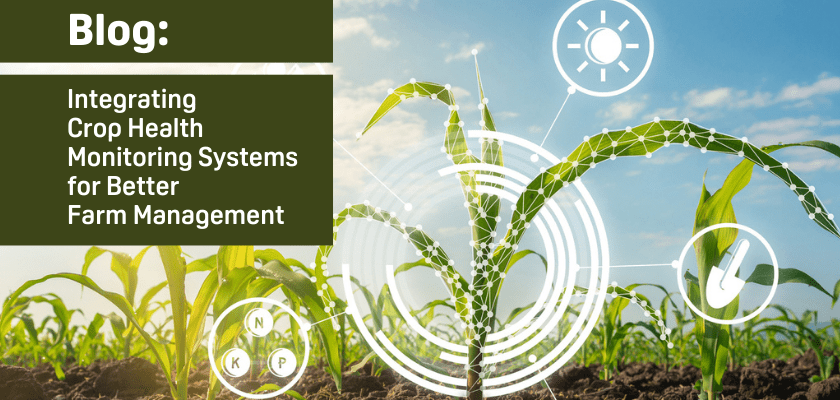
Integrating Crop Health Monitoring Systems for Better Farm Management
Crop health monitoring systems revolutionize modern agriculture by enabling real-time insights into plant health, reducing losses, and promoting sustainability. Tools like Doktar’s CropMap and Orbit integrate advanced technologies, empowering farmers with data-driven decisions. By enhancing efficiency and sustainability, these systems are essential for future-proofing agricultural operations.
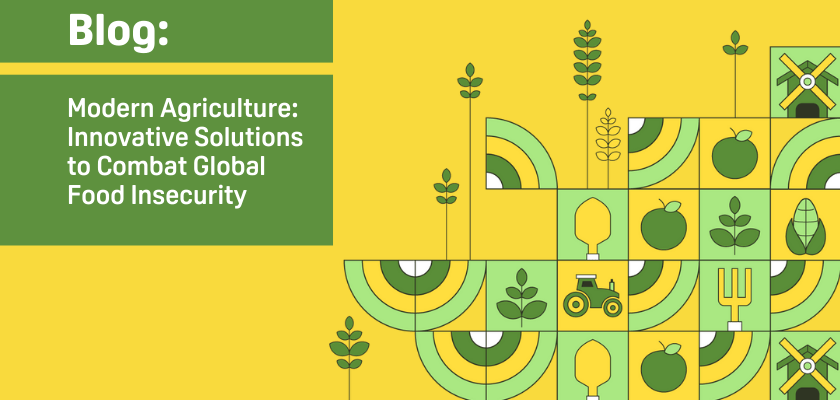
Modern Agriculture: Innovative Solutions to Combat Global Food Insecurity
Modern agriculture combats global food insecurity with precision agriculture, sustainable practices, and biotechnology. Tools like IoT, automation, and crop innovations optimize resource use, enhance resilience, and ensure stable food supplies. By integrating smart technologies, agribusinesses address challenges like climate change and resource scarcity, paving the way for a sustainable food future.
